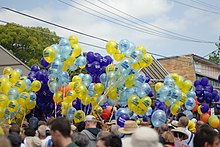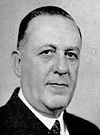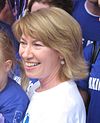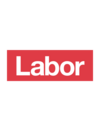Division Of Bennelong
Bennelong covers 60 km of the Northern Sydney region, including all of the local government areas of Ryde and parts of Hornsby and Parramatta. It includes the suburbs of Denistone, Denistone East, Denistone West, East Ryde, Eastwood, Epping, Macquarie Park, Marsfield, Meadowbank, Melrose Park, North Epping, North Ryde, Putney, Ryde, Tennyson Point and West Ryde; as well as parts of Beecroft, Carlingford, Chatswood West, Dundas, Ermington and Gladesville.
It was represented from 1974 until 2007 by John Howard, who served as the Prime Minister of Australia from 1996 until 2007. As well as his government then being defeated, Howard also became the second sitting Australian Prime Minister to lose his own seat. Though historically a fairly safe Liberal seat, modern-day electoral boundaries and demographic changes have seen Bennelong become an increasingly marginal seat. The 2007 outcome in Bennelong resulted in Labor candidate Maxine McKew winning the seat on a thin 1.4 percent margin after a close contest, making her the first Labor MP for Bennelong. After a single term, McKew was defeated by Liberal candidate John Alexander in 2010, who retained it (not including a short vacancy in 2017) until the 2022 general election.
The seat was vacant from 11 November 2017 when Alexander resigned amid the 2017–18 Australian parliamentary eligibility crisis after confirming he was a dual citizen and therefore ineligible to sit in parliament. Despite a significant swing against him, Alexander was re-elected at the 2017 Bennelong by-election on 16 December.
Geography
Since 1984, federal electoral division boundaries in Australia have been determined at redistributions by a redistribution committee appointed by the Australian Electoral Commission. Redistributions occur for the boundaries of divisions in a particular state, and they occur every seven years, or sooner if a state's representation entitlement changes or when divisions of a state are malapportioned.
Electoral history

When the Division of Bennelong was created in 1949, it covered mainly the suburbs of Ryde, Hunters Hill and Lane Cove, all of which were (and still are) relatively affluent areas. It was originally created as a notionally marginal Liberal seat. However, the Liberal margin blew out in the Coalition's landslide victory that year, and for most of the next half-century it was a fairly safe to safe Liberal seat.
The seat's first member was Sir John Cramer, a minister in the Menzies government. In 1974, he handed the seat to John Howard, a minister in the Fraser government, and Leader of the Opposition from 1985 to 1989 and 1995 to 1996 before becoming Prime Minister of Australia from 1996 to 2007.
From 1949 to 1996, the Liberal hold on the seat was only seriously threatened four times; those were the only times that the seat was marginal against Labor. From 1998 onward, Bennelong became increasingly marginal, and this has been attributed to two factors. Firstly, the electoral boundary of Bennelong has been redrawn ("redistributed") numerous times, pushing it further westward into Labor-friendly territory near Paramatta. Successive redistributions eliminated Lane Cove and Hunters Hill in the east and incorporated Eastwood, Epping, Carlingford and middle-class Ermington in the north and west. Secondly, the demographic has changed as well: since the early 1990s, Eastwood and surrounding suburbs have seen an influx of migrants from China, Hong Kong, South Korea and India, who are relatively affluent and conservative, but are sensitive towards political policies on immigration and multiculturalism.
1998 election
In 1998, Prime Minister John Howard finished just short of a majority on the first count in the seat, and was only assured of re-election on the ninth count. He ultimately won a fairly comfortable 56 percent of the two-party-preferred vote.
2004 election
In 2004, for the second time since becoming Prime Minister, Howard came up short of a majority in the first count for the seat. He was assured of re-election on the third count, ultimately winning 53.3 percent of the two-party-preferred vote. The two-party-preferred vote for the Liberals declined 3.4% in the 2004 election, contrary to a strong national trend to the Coalition (and a particularly strong one to the Coalition in outer-suburban metropolitan seats), making Bennelong a marginal seat at that time, with a margin of just 4.3%. The 2006 redistribution pushed this margin slightly further into Labor territory, due to the inclusion of the predominantly working-class and public housing suburb of Ermington in Bennelong's boundaries. The Greens increased their vote at this election by 12.34% to 16.37% at this election, owing to the pre-selection of the high-profile Andrew Wilkie as candidate.
2007 election


In the 2007 election, the incumbent Member for Bennelong, then-Prime Minister John Howard, lost the seat to Labor candidate Maxine McKew, after holding it for 33 years. This was only the second time in Australian history that an incumbent Prime Minister had been defeated in his own electorate, the first being Stanley Bruce in 1929. The election marked the first time a Labor candidate won, and also the first time a woman won the seat.
After the 2004 election, Howard sat on a margin of four percent, placing Bennelong just barely on the edge of seats that would fall to Labor in the event of a uniform swing that delivered it government.
As expected, the contest was very tight, and many media outlets listed Bennelong as a Labor gain on election night. In his nationwide speech conceding the election, Howard admitted it was "very likely" he had lost his own seat. Following initial reluctance to officially call the outcome (despite confidence of success), McKew declared victory officially on 1 December. At that time, the Australian Electoral Commission showed McKew ahead on a two-candidate-preferred basis, by 43,272 votes to 41,159; however, pre-poll, postal and absent votes were still being counted and could possibly have affected the outcome.
Howard formally conceded defeat in Bennelong on 12 December. The Electoral Commission declared the seat, with 44,685 votes for McKew to 42,251 for Howard. McKew led for most of the night, and ultimately won on the 14th count after over three-fourths of Green preferences flowed to her. Voter turnout in Bennelong was 95%.
Polls
| Date | Poller | Coalition | Labor |
|---|---|---|---|
| 3 October 1998 | 1998 election | 56.03% | 43.97% |
| 4–5 April 2001 | Roy Morgan | 57% | 43% |
| 10 November 2001 | 2001 election | 57.70% | 42.30% |
| 9 October 2004 | 2004 election | 54.33% | 45.67% |
| 14–15 February 2007 | Roy Morgan | 45% | 55% |
| 9–10 May 2007 | Galaxy | 48% | 52% |
| 8–9 August 2007 | Galaxy | 47% | 53% |
| 17 August 2010 | Roy Morgan | 50.5% | 49.5% |
| 7 September 2013 | 2013 election | 57.77% | 42.23% |
| 2 July 2016 | 2016 election | 59.7% | 40.3% |
| 14 December 2017 | ReachTel | 53% | 47% |
| 18 May 2019 | 2019 election | 56.91% | 43.09% |
2010–17
For the 2010 federal election, the Liberal Party pre-selected former tennis professional and tennis commentator John Alexander to contest the marginal seat. McKew recontested the seat for Labor. After a long and high-profile campaign, Alexander won the seat back from Labor; he increased both the Liberals' two-party-preferred and primary vote for the first time since 2001, and gained the largest swing towards the Liberals since 1996. Alexander defeated McKew with a two-party-preferred swing of 4.52% (cf. the 2.58% national swing in the 2010 federal election), contributing to the Gillard government's loss of its parliamentary majority.
McKew said Labor had failed to repeat the professional and targeted campaign of 2007. She also conceded that the removal of Kevin Rudd as Prime Minister had been a factor in the party's poor showing, along with the Government's dumping of the emissions trading scheme and a lacklustre national campaign.
Alexander picked up a four-percent swing in the 2013 federal election as the Coalition returned to government, returning Bennelong to its traditional status as a safe Liberal seat. He was reelected in 2016 with a small swing in his favour, even as the Coalition barely won a second term. On 11 November 2017, Alexander resigned his seat over questions of his eligibility to stand under section 44 of the Constitution, necessitating a by-election.
2017 by-election
Amid the 2017–18 Australian parliamentary eligibility crisis, the trigger for the by-election was the resignation of Liberal incumbent John Alexander effective 11 November 2017. A few weeks following the increased clarity which came from the judgment of the High Court of Australia sitting as the Court of Disputed Returns on 27 October 2017 further determining dual citizenship ineligibility under Section 44 of the Constitution, Alexander resigned due to a belief that he may have held British citizenship at the time of his nomination and election, meaning he would be ineligible under Section 44 of the Constitution to sit in the Parliament of Australia. Alexander renounced any British citizenship he may have held, or otherwise been eligible for, in order to nominate for election again.
Alexander won the 2017 Bennelong by-election despite an approximate five percent two-party swing away to Labor candidate Kristina Keneally which made the seat marginal.
2019 election
Alexander was not challenged for preselection for the 2019 federal election. With a margin of 9.7% from the 2016 election, Alexander competed against high profile neurosurgeon Brian Owler, who formerly chaired the Australian Medical Association and has worked closely with the NSW Government to be the face of a successful anti-speeding campaign for road safety. Owler's eminent persona was aided by several inflammatory remarks from Alexander, ultimately leading to a 2.8% swing away to Labor, which reduced the Liberal Party's hold on the seat to a margin of 6.9%. Alexander, who was standing for the 5th time as candidate for Bennelong, is widely regarded to have built a strong personal vote in the seat. This has led to Bennelong having a relatively stable two party preferred result from the last 3 federal elections, in the Coalition's favour. Alexander declared victory shortly after counting had passed 50%.
2022 election
On 12 November 2021, Alexander revealed that he would not contest the seat at the forthcoming federal election. ABC election analyst Antony Green pointed to the loss of Alexander's high personal vote as a vulnerability for the Coalition, giving the Labor Party a strong chance to reclaim the seat after McKew was unseated by Alexander in 2010. Former Ryde mayor and Labor candidate Jerome Laxale took the seat from the Liberals with a 7.9% swing in his favour, making him the second Labor member ever to win it. The loss of the seat has been attributed to the notably large swings against the Liberal Party among Chinese Australian voters which has cost the Liberal Party many key seats.
Members
| Image | Member | Party | Term | Notes | |
|---|---|---|---|---|---|

|
Sir John Cramer (1896–1994) |
Liberal | 10 December 1949 – 11 April 1974 |
Served as minister under Menzies. Retired. Last person born before Federation to serve in the House of Representatives | |

|
John Howard (1939–) |
18 May 1974 – 24 November 2007 |
Served as minister under Fraser. Served as Opposition Leader from 1985 to 1989, and from 1995 to 1996. Served as Prime Minister from 1996 to 2007. Lost seat | ||

|
Maxine McKew (1953–) |
Labor | 24 November 2007 – 21 August 2010 |
Lost seat | |

|
John Alexander (1951–) |
Liberal | 21 August 2010 – 11 November 2017 |
Resigned due to dual citizenship. Subsequently re-elected. Retired | |
| 16 December 2017 – 11 April 2022 | |||||

|
Jerome Laxale (1983–) |
Labor | 21 May 2022 – present |
Incumbent |
Election results
| Party | Candidate | Votes | % | ±% | |
|---|---|---|---|---|---|
| Liberal | Simon Kennedy | 41,206 | 41.35 | −9.47 | |
| Labor | Jerome Laxale | 37,596 | 37.73 | +3.70 | |
| Greens | Tony Adams | 11,395 | 11.44 | +1.97 | |
| United Australia | Rhys Collyer | 2,915 | 2.93 | +0.97 | |
| Fusion | John August | 2,125 | 2.13 | +2.13 | |
| One Nation | Victor Waterson | 1,664 | 1.67 | +1.67 | |
| Liberal Democrats | Dougal Cameron | 1,539 | 1.54 | +1.54 | |
| Democratic Alliance | Kyinzom Dhongdue | 1,208 | 1.21 | +1.21 | |
| Total formal votes | 99,648 | 94.20 | −0.64 | ||
| Informal votes | 6,130 | 5.80 | +0.64 | ||
| Turnout | 105,778 | 92.03 | −1.29 | ||
| Two-party-preferred result | |||||
| Labor | Jerome Laxale | 50,801 | 50.98 | +7.89 | |
| Liberal | Simon Kennedy | 48,847 | 49.02 | −7.89 | |
| Labor gain from Liberal | Swing | +7.89 | |||

 indicates at what stage the winning candidate had over 50% of the votes and was declared the winner.
indicates at what stage the winning candidate had over 50% of the votes and was declared the winner.Graphs are unavailable due to technical issues. Updates on reimplementing the Graph extension, which will be known as the Chart extension, can be found on Phabricator and on MediaWiki.org. |
Demographics
As of the 2021 Census significant statistics included a population of 191,219 with a median age of 37 years old with a median weekly household income of $2,124.
Further information can be found from recent Censuses, most recently the Australian Bureau of Statistics 2021 Census profile.
Cultural diversity
| 2021 Australian census | |||
|---|---|---|---|
| Ancestry | |||
| Response | Bennelong | NSW | Australia |
| Chinese | 28.8% | 7.2% | 5.5% |
| English | 16.2% | 29.8% | 33.0% |
| Australian | 15.5% | 28.6% | 29.9% |
| Korean | 6.1% | 0.9% | 0.5% |
| Irish | 5.6% | 9.1% | 9.5% |
| Country of birth | |||
| Response | Bennelong | NSW | Australia |
| Australia | 46.1% | 65.4% | 66.9% |
| China | 13.7% | 3.1% | 2.2% |
| India | 4.7% | 2.6% | 2.6% |
| South Korea | 4.6% | 0.7% | 0.4% |
| Hong Kong | 3.3% | 0.6% | 0.4% |
| Philippines | 1.9% | 1.3% | 1.2% |
| Religious affiliation | |||
| Response | Bennelong | NSW | Australia |
| No religion | 37.1% | 32.8% | 38.4% |
| Catholicism | 20.8% | 22.4% | 20.0% |
| Anglican | 6.8% | 11.9% | 9.8% |
| Hinduism | 5.1% | 3.4% | 2.7% |
| Language spoken at home | |||
| English | 43.6% | 67.6% | 72.0% |
| Mandarin | 15.3% | 3.4% | 2.7% |
| Cantonese | 8.4% | 1.8% | 1.2% |
| Korean | 5.7% | 0.8% | 0.5% |
| Hindi | 1.9% | 1.0% | 0.8% |
| Arabic | 1.6% | 2.8% | 1.4% |
References
- ^ Muller, Damon (14 November 2017). "The process of federal redistributions: a quick guide". Parliament of Australia. Archived from the original on 23 May 2022. Retrieved 19 April 2022.
- ^ Saville, Margot (2007). The Battle for Bennelong: The adventures of Maxine McKew, aged 50something. Melbourne University Press.
- ^ "Archive for the 'Federal Redistributions' Category". The Poll Bludger. 13 September 2006. Archived from the original on 7 July 2007. Retrieved 25 November 2007.
- ^ "Defeated Howard thanks Australia". ABC News. Australia. 25 November 2007. Archived from the original on 27 November 2007. Retrieved 25 November 2007.
- ^ "McKew refuses to call Bennelong". News.com.au. 25 November 2007. Retrieved 1 December 2007.
- ^ "McKew confident but can wait to declare". The Australian. 26 November 2007. Archived from the original on 28 November 2007. Retrieved 1 December 2007.
- ^ "McKew declares victory in Bennelong". ABC News. Australia. 1 December 2007. Archived from the original on 2 December 2007. Retrieved 1 December 2007.
- ^ "Maxine McKew claims victory in Bennelong". The Sydney Morning Herald. 1 December 2007. Archived from the original on 26 October 2012. Retrieved 1 December 2007.
- ^ "House of Representatives Division First Preferences". Australian Electoral Commission. 30 November 2007. Archived from the original on 20 July 2008. Retrieved 1 December 2007.
- ^ "Finally, Howard admits McKew has it". The Sydney Morning Herald. 12 December 2007. Archived from the original on 22 February 2016. Retrieved 13 December 2007.
- ^ "House of Representatives Division First Preferences". Australian Electoral Commission. 11 December 2007. Archived from the original on 20 July 2008. Retrieved 13 December 2007.
- ^ "House of Representatives – Two Party Preferred Statistics by Division (1998)". Australian Electoral Commission. 9 August 2007. Archived from the original on 31 August 2007. Retrieved 25 November 2007.
- ^ ""Safe" Liberal Seats Not So Safe According To Latest Bulletin-Morgan Poll". Roy Morgan Research. 17 April 2001. Archived from the original on 17 December 2007. Retrieved 25 November 2007.
- ^ "House of Representatives: Divisional Results". Australian Electoral Commission. Archived from the original on 31 August 2007. Retrieved 25 November 2007.
- ^ "Bennelong – Divisional Profiles". Australian Electoral Commission. 15 October 2007. Archived from the original on 31 August 2007. Retrieved 25 November 2007.
- ^ "Special Crikey Morgan Poll: Howard Would Lose Bennelong". Roy Morgan Research. 19 February 2007. Archived from the original on 7 September 2007. Retrieved 25 November 2007.
- ^ "Maxine McKew behind in Bennelong: L-NP 50.5% cf. ALP 49.5%". Roy Morgan Research. 17 August 2010. Archived from the original on 26 December 2021.
- ^ 2013 results for Bennelong Archived 26 December 2021 at the Wayback Machine, AEC.
- ^ Bennelong, NSW, Tally Room 2019, Australian Electoral Commission.
- ^ "Four Liberals vying for Bennelong seat". ABC News. 20 November 2009. Archived from the original on 13 February 2010. Retrieved 28 February 2010.
- ^ "Bennelong, NSW". Election 2010. Australian Electoral Commission. 2010. Archived from the original on 4 March 2016. Retrieved 26 January 2015.
- ^ "Labor bloodbath begins and Maxine McKew throws the first punch". news.com.au. 22 August 2010. Archived from the original on 12 September 2012. Retrieved 14 February 2012.
- ^ "Alexander resigns from parliament, says he's 'most likely' a dual citizen". ABC News. 11 November 2017. Archived from the original on 11 November 2017. Retrieved 11 November 2017.
- ^ Robertson, James (17 November 2017). "John Alexander confirms eligibility to stand in byelection on advice from UK Home Office". The Sydney Morning Herald. Archived from the original on 18 November 2017. Retrieved 18 November 2017.
- ^ "Bennelong by-election: Liberal John Alexander wins, Labor buoyed by swing: ABC 16 December 2017". Archived from the original on 18 December 2017. Retrieved 17 December 2017.
- ^ Bennelong - Federal Election 2022
- ^ Knott, Matthew (25 May 2022). "Chinese-Australian voters punished Coalition for hostile rhetoric". Sydney Morning Herald. Archived from the original on 3 February 2024. Retrieved 3 February 2024.
- ^ Bennelong, NSW, 2022 Tally Room, Australian Electoral Commission.
- ^ Australian Bureau of Statistics (28 June 2022). "Bennelong". 2021 Census QuickStats. Retrieved 3 November 2023.
- ^ "2021 Bennelong, Census All persons QuickStats | Australian Bureau of Statistics".